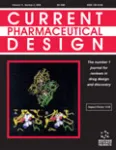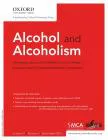 Accueil
Accueil
Mots-clés
|
Thésaurus mots-clés > Epidémiologie : variables et méthodes > Méthodes > EPIDEMIOLOGIE ANALYTIQUE > ETUDE RANDOMISEE
ETUDE RANDOMISEE |
Documents disponibles dans cette catégorie (248)
 Ajouter le résultat dans votre panier Faire une suggestion Affiner la recherche
Ajouter le résultat dans votre panier Faire une suggestion Affiner la recherche
Article : Périodique
J. KAKKO ; K. D. SVANBORG ; M. J. KREEK ; M. HEILIG |Background: The partial opiate-receptor agonist buprenorphine has been suggested for treatment of heroin dependence, but there are few long-term and placebo-controlled studies of its effectiveness. We aimed to assess the 1-year efficacy of bupre[...]
Article : Périodique
C. FARREN ; A. FARRELL ; A. HAGERTY ; C. MCHUGH |BACKGROUND AND AIMS: Alcohol use disorder (AUD) is a substantial problem, causing early death and great economic burden. Research has highlighted the potential positive impact of technological interventions, such as smartphone applications (app)[...]
Article : Périodique
BACKGROUND AND AIMS: Randomized controlled trials (RCTs) are important for evaluating interventions, and qualitative research is increasingly recognized as being crucial to the success of this enterprise. We aimed to describe and demonstrate a t[...]
Article : Périodique
Trends in alcohol consumption of college students remain a concern. Presented is a systematic review to determine the efficacy of alcohol-abuse interventions for college students. To be included in this review, the study must have been published[...]
Article : Périodique
R. MIDFORD ; H. CAHILL ; L. LESTER ; R. RAMSDEN ; D. FOXCROFT ; L. VENNING |Aims: The Drug Education in Victorian Schools (DEVS) programme taught about licit and illicit drugs over two years (2010-2011), with follow up in the third year (2012). It focussed on minimising harm and employed participatory, critical-thinking[...]
Article : Périodique
CONTEXT: Potentially effective environmental strategies have been recommended to reduce heavy alcohol use among college students. However, studies to date on environmental prevention strategies are few in number and have been limited by their no[...]
Article : Périodique
G. W. JOE ; K. KNIGHT ; D. D. SIMPSON ; P. M. FLYNN ; J. T. MOREY ; N. G. BARTHOLOMEW ; M. STATON-TINDALL ; W. M. BURDON ; E. A. HALL ; S. S. MARTIN ; D. J. O'CONNELL |Finding brief effective treatments for criminal justice populations is a major public need. The CJ-DATS Targeted Intervention for Corrections (TIC), which consists of six brief interventions (communication, anger, motivation, criminal thinking, [...]
Article : Périodique
Technology-based interventions such as those delivered by telephone or online may assist in removing significant barriers to treatment seeking for cannabis use disorder. Little research, however, has addressed differing technology-based treatmen[...]
Article : Périodique
H. R. WHITE ; Y. JIAO ; A. E. RAY ; D. HUH ; D. C. ATKINS ; M. E. LARIMER ; K. FROMME ; W. R. CORBIN ; J. S. BAER ; J. W. LABRIE ; E. Y. MUN |Objective: This study examined whether brief motivational interventions (BMIs) designed for reducing heavy drinking among college students have secondary effects on reducing marijuana use. Method: The data came from Project INTEGRATE, which com[...]
Article : Périodique
M. MEINI ; M. MONCINI ; D. CECCONI ; V. CELLESI ; L. BIASCI ; G. SIMONI ; M. AMEGLIO ; M. PELLEGRINI ; R. N. FORGIONE ; P. RUCCI |BACKGROUND: Currently, there is no specific pharmacological therapy with established efficacy for the treatment of cocaine dependence. The aim of this study was to determine the safety, tolerability and the effects of aripiprazole and ropinirole[...]
Article : Périodique
ENGLISH: The Moti-4 intervention, in which motivational interviewing, self-monitoring, and strengthening behavioral control are used, was developed in the Netherlands in response to several rapid assessments of problematic use of cannabis among[...]
Article : Périodique
Baclofen may reduce the symptoms of alcohol withdrawal, as an alternative or as an adjuvant for benzodiazepines, but the available data are insufficient to support baclofen-assisted alcohol withdrawal. This study investigated the need for diazep[...]
Article : Périodique

Rapport
FRANÇAIS : Le baclofène, agoniste des récepteurs GABA B, est prescrit depuis 40 ans pour le traitement de la spasticité à une posologie de 30 à 80 mg par jour. Depuis 2005 de hautes doses de baclofène sont utilisées en France dans l'alcoolodépe[...]
Article : Périodique
H. BRENDRYEN ; I. O. LUND ; A. B. JOHANSEN ; M. RIKSHEIM ; S. NESVAG ; F. DUCKERT |Aims: To compare a brief versus a brief plus intensive self-help version of 'Balance', a fully automated online alcohol intervention, on self-reported alcohol consumption. Design: A pragmatic randomized controlled trial. Participants in both c[...]




